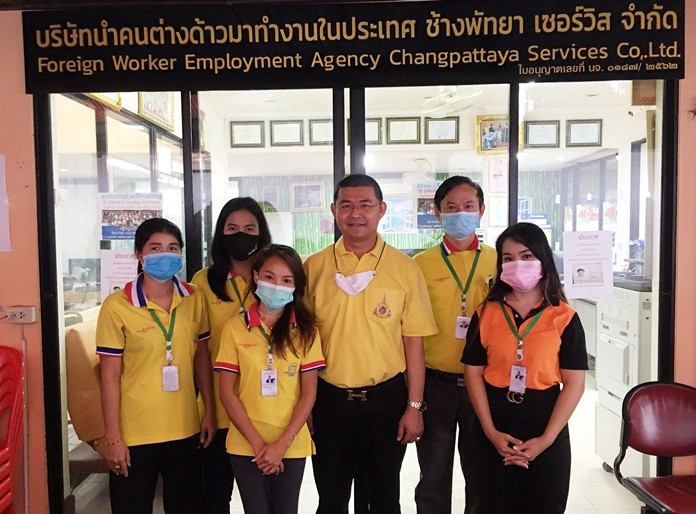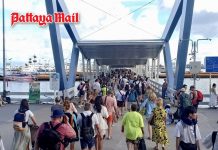
Travel difficulties created by the Covid-19 pandemic have reduced the number of guest workers in Thailand by at least 50 percent. The Foreign Worker Employment Agency (FWEA) says that the former 180,000 total in Chonburi province alone is now a mere 90,000 after land borders were closed last spring.
Traditionally, Thailand has relied on temporary immigrants from Myanmar, Cambodia and Laos to fill gaps in the labour market in the construction and fishing industries as well as in the retail and hospitality sectors. But prior to 2018 there was little structured organization and many employers did not concern themselves with the registration process. Thus there were many illegal transients who were frequently loaded onto buses by immigration police and returned to a land border. The whole ballgame then became a repeat performance.
In 2018 the Thai government signed Memorandums of Understanding (MOU) with each of the participating countries – Myanmar, Cambodia and Laos – to ensure a legal flow of male and female workers and to establish a minimum wage and social insurance for hospital care in case of illness. The minimum daily wage in Chonburi province (there is no national rate) is 331 baht which includes accommodation but not food.
Chonburi FWEA chief executive Jessataporn Sriboo, who heads the office adjacent to the immigration police headquarters in Jomtien, said, “Travel restrictions have made it very difficult to fulfill our quotas. The border posts are still closed to traffic for most human traffic, but there is an official dispensation to allow through 80 guest workers a day. They are tested for coronavirus and must stay for two weeks in a state-run quarantine facility. The cost of that is 13,000 baht which must be paid by the entrant or by his or her potential employer.” Illegal immigrants are subject to arrest and deportation.
There may be surprise that Thailand is short of employees during the economic downturn created by Covid-19. But the Thai birth rate has been in substantial decline for many years, resulting in a growing shortage of young people. Also, some Thai youths are apparently disinclined to enter the manual labour market where most of the guest workers are to be found. In the Pattaya area, many construction sites are still working at full pace to complete condominiums and other large-scale buildings as quickly as possible.
The current regulations permit a guest worker with the authorized “pink card” to remain here in employment for four years. Some marry whilst in Thailand and it is not uncommon to see mother, father and young children all together at the FWEA office in Jomtien. If they wish to return to their home country for a brief visit, they require a re-entry permit in their passport and they have to comply with the 90-days address reporting requirement. They no longer report directly to the immigration bureau for processing as the FWEA is authorized to be the intermediary for employment purposes.
The FWEA deals only with foreigners from the three countries which have signed MOUs with the Thai government. Meanwhile, farang from other countries must usually obtain the necessary business “B” non-immigrant visa and a blue-book permit from the Department of Labour. However, work permits are no longer required for a short-term business visits or specialized employment in hi-tech industries where a so-called, four-year Smart visa is available. Recent government announcements further state that some Elite card holders and property/investment immigrants may be able to conduct their affairs without a traditional work permit. Whatever you make of Thailand’s immigration regulations, they are certainly not standing still. You can bet on it.
 |
 |
 |





